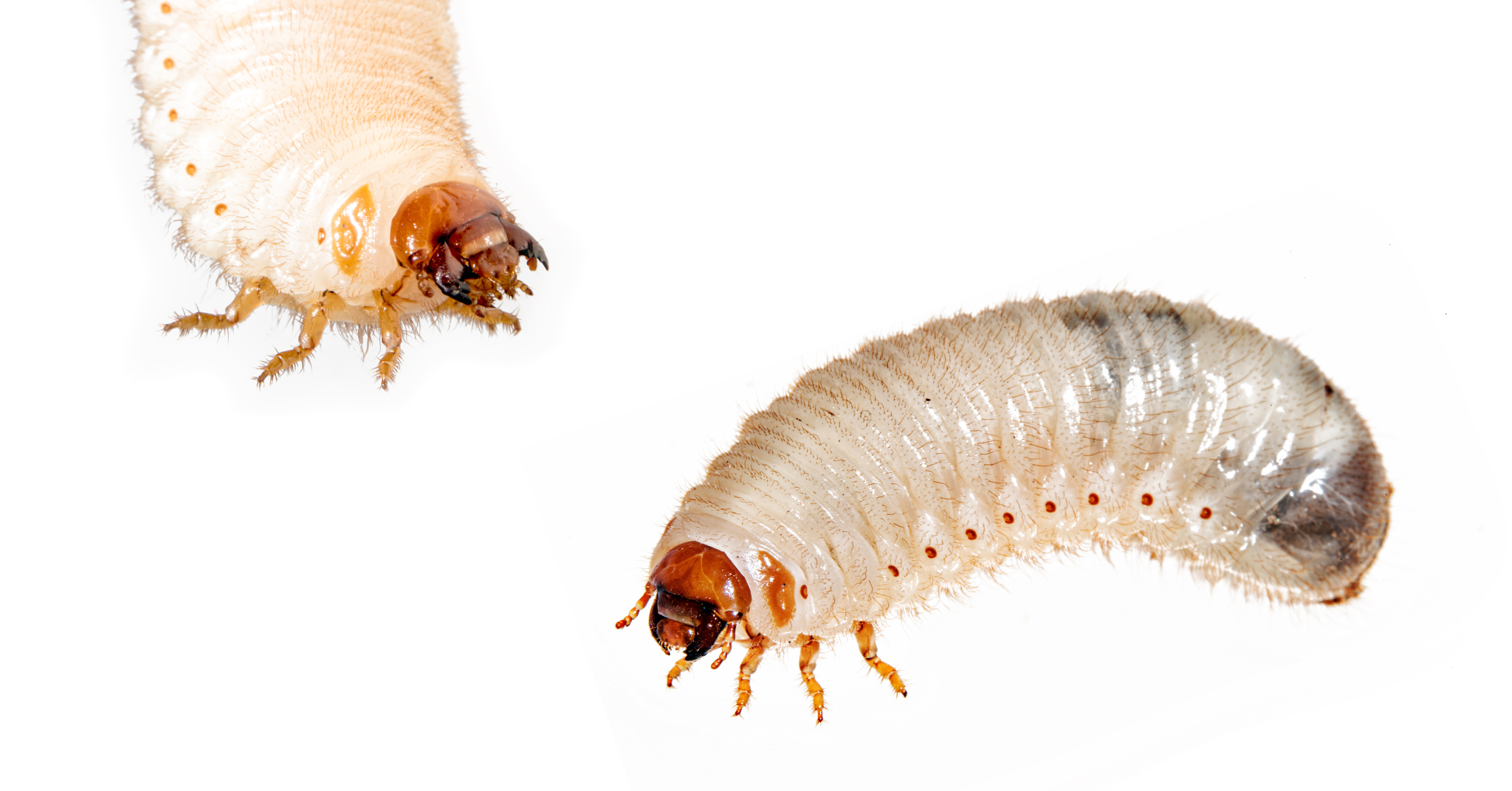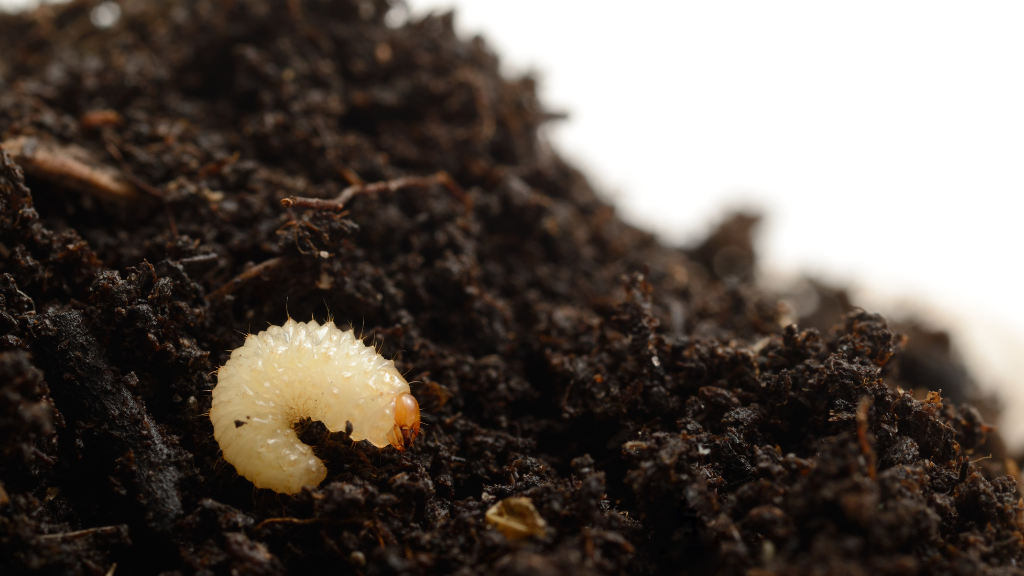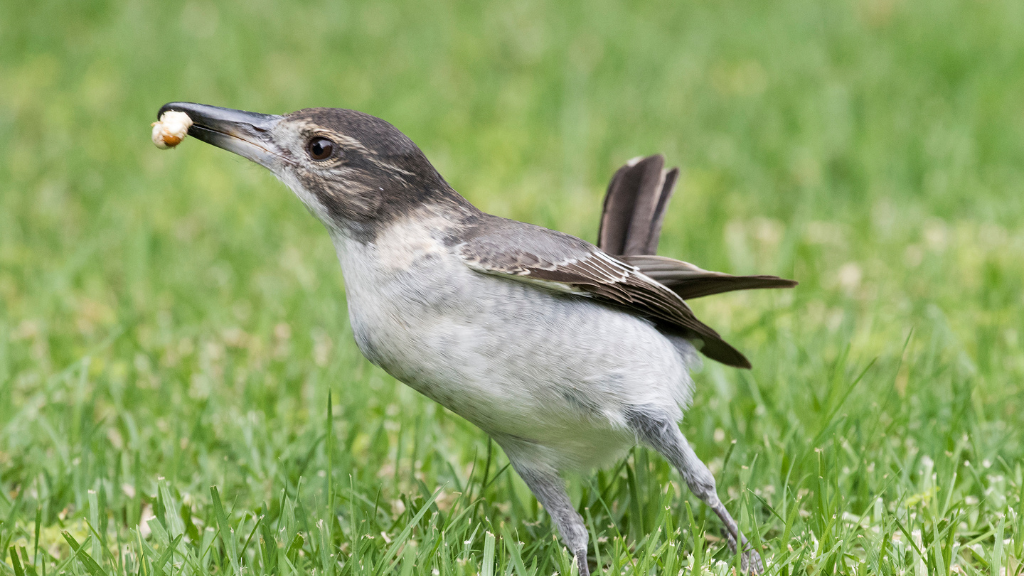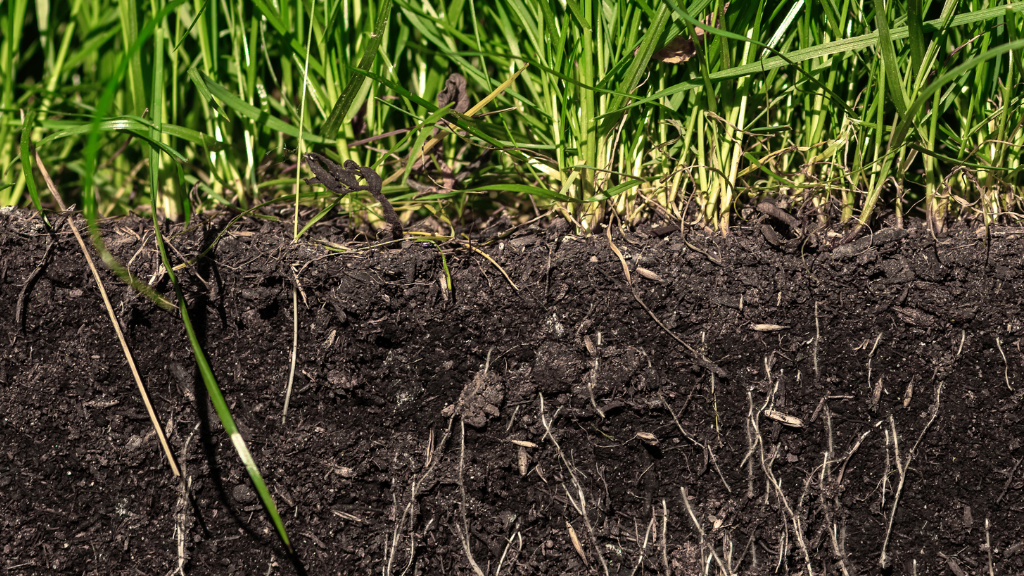DIY Tips for Grubs

Did you know that the pests commonly referred to as “grub worms” aren’t actually worms at all? While these squirmy guys may appear to be members of the worm family, grubs are actually hungry beetle larvae.
Grubs wreak havoc on your yard from the moment they hatch only to mature into adult beetles that continue to feast on your prized plants. Getting rid of these pests starts with knowing what to look for and what to do after you’ve recognized the telltale signs of a nasty grub infestation.
HOW DO I IDENTIFY GRUBS?
A grub infestation is characterized by random yellow or brown patches of grass that don’t improve with extra watering. This is because grubs chew on tasty grass roots, damaging the plants in a way that no amount of extra watering will save.
Grubs don’t feast on grass alone, however—your vegetables and ornamental plants are just as appetizing. You’ll find that the dead or dying plants and patches of grass will pull up fairly easily—another sign of grub activity. Grubs are thorough in their root damage and leave little structure behind to hold plants in place.
You’re likely to spot the grubs themselves at or below the soil level. When they’re not destroying your plants, these short, stout, white insects are usually curled up in a C shape underground. Grubs are typically up to about an inch long with brown or tan heads and small legs used to navigate through soil.
You’re most likely to catch sight of these larvae in the spring/early summer or in autumn, as eggs lay dormant before hatching during the colder months. Many varieties of beetles can take up to a year to complete their life cycle, so if grubs do invade your yard, they’re likely to stick around for months.
HOW CAN I GET RID OF GRUBS?
Removing grubs isn’t impossible, and many of the most effective, natural techniques used to control grubs can be done on your own:
- Neem Oil
This natural substance is a good deterrent for adult beetles, discouraging them from mating and laying their eggs around your yard. Spraying a diluted mixture of neem oil and water onto the affected areas of your lawn and garden during peak season will not only maximize the oil’s deterrent properties, but also discourage existing grubs from feasting as well. - Milky Spore
Grubs can be deterred using this natural pathogen. But don’t be alarmed by the word “pathogen”—this environmentally friendly product keeps your home and garden safe since it only affects grubs and has no impact on your plants. The milky spore is simply spread on or mixed into the soil (follow package directions for application specifics). Milky spore can take between one to three years to become fully effective, so while it’s a great preventative method, it won’t eradicate an existing grub population right away. - Beneficial Nematodes
Sometimes in order to drive out one pest, introducing another species of insect can be your best bet. Enter beneficial nematodes: an insect species that can be purchased at your local home and garden store or even bought online and shipped straight to your door. Simply follow the instructions to hydrate and spray these tiny bacteria-releasing worms on affected areas and allow them to work their magic in eliminating pesky grubs.
WHEN WILL MY YARD BE GRUB FREE?
Because of the often lengthy life cycle of beetles, grub removal can be an extended process. Many of the most effective methods of grub control are preventative and must be done at optimal times within the beetle’s life cycle in order to adequately stop grubs from taking over.
A minor grub infestation may not seem to need any intervention right away, but if left untreated, this problem can lead to spongy patches of grass, dead-and-dying areas of your lawn, and complete plant loss. When a grub problem has been discovered, taking the right approach at the right time is crucial. A grub problem, depending on the plan of attack, can be wiped out in a matter of months, or it can take years.
If insects are plaguing your property—be it inside or out—give the pest experts at Moxie Pest Control a call. We take the stress out of pest control so you can enjoy your home and yard in peace.




